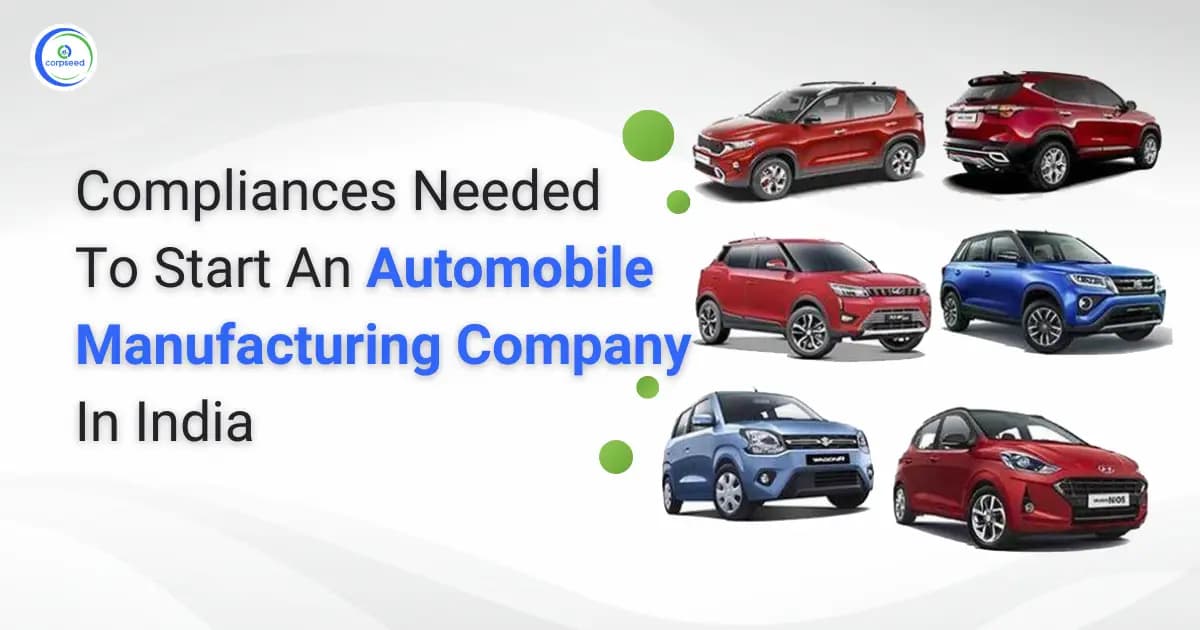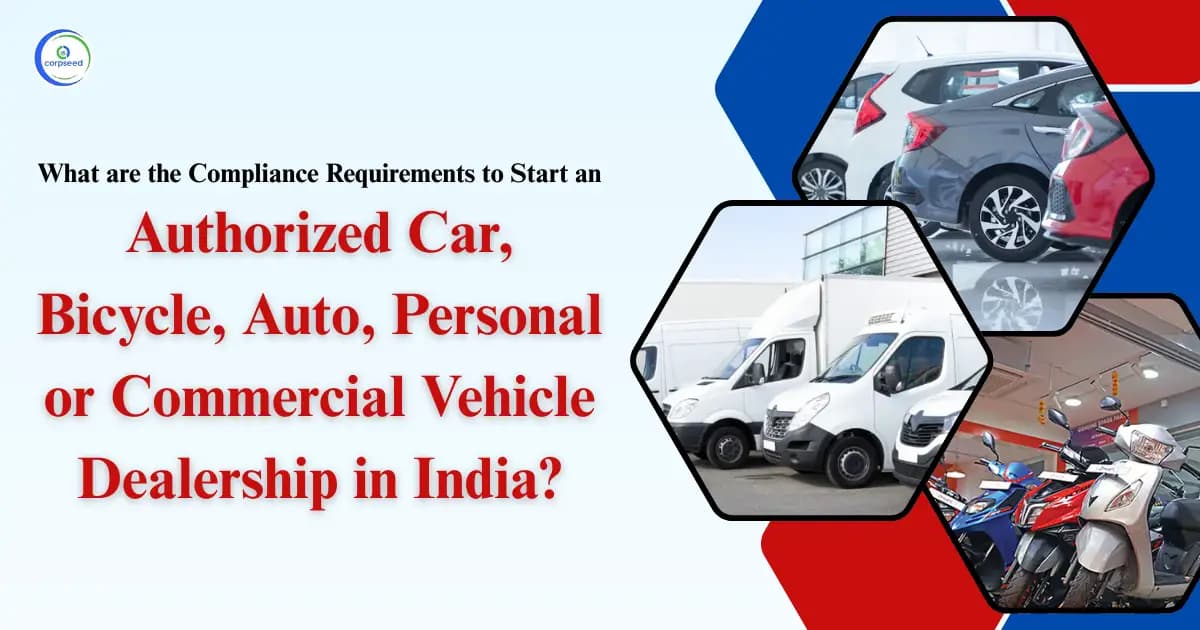
Loading...

A business that may never go out of style or loss is the automobile industry. Be it 20 years back or after, vehicles are a commodity that evolve drastically.
About the Author

A Post Graduate in the field of Corporate and Commercial Laws. I have worked as a freelance content writer for several Legal topics for over 5 years. I aspire to learn and grow in this field along with being able to portray my Legal skills through writing.
Related articles

What is the Compliance Checklist for Startups (2026)?
2026-02-17

Project Setup Compliance Services in India
2025-05-09

What are the Compliance Requirements to Start an Authorized Car, Bicycle, Auto, Personal or Commercial Vehicle Dealership in India?
2025-05-06

Important Registrations and Licenses required for Start-ups
2025-02-21

What are the Permits Required to Set up a Business in India?
2025-02-20

How Can I get a Business License in India?
2025-02-19